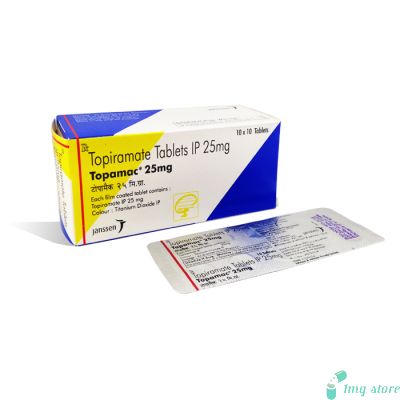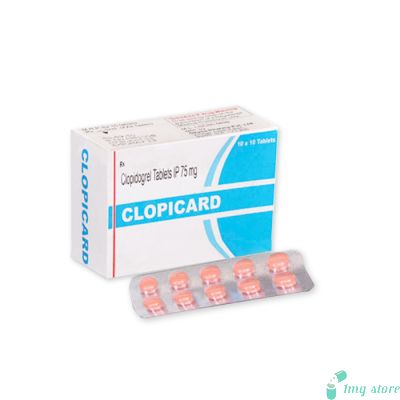Eptoin Tablet (Phenytoin)
Eptoin Tablet (Phenytoin) is a prescription medication utilized for the treatment and prevention of epilepsy, specifically seizures. It works by reducing the abnormal and excessive activity of nerve cells in the brain, thus helping to control seizures. Phenytoin is also referred to as Dilantin.
Eptoin Tablet (Phenytoin) as a Anticonvulsant Drug
Eptoin Tablet, also known as Phenytoin, is a widely prescribed medication used to treat epilepsy and seizures. It is a form of anticonvulsant drug that helps in controlling abnormal electrical activity in the brain. Dilantin is another brand name for the same medication, containing the active ingredient Phenytoin sodium.
Phenytoin in various forms: Phenytoin is available in various forms, including tablets, capsules, and oral suspension. The specific form prescribed to you will depend on your condition and the dosage recommended by your healthcare professional. It is important to follow the prescribed dosage and administration instructions to ensure the effective management of your Epilepsy or seizure disorder.
Always consult with your doctor before starting or altering any medication regimen. They will guide you regarding the appropriate dosage, potential side effects, and any necessary precautions while taking Phenytoin. Remember, it is crucial to take the medication as prescribed and attend regular check-ups with your healthcare provider to monitor the effectiveness of the treatment and make any necessary adjustments.
The dosage of phenytoin sodium tablets may vary depending on the individual's condition, age, weight, and other factors. It is important to follow the dosage instructions provided by your doctor or as mentioned on the prescription label. Never exceed or decrease the prescribed dosage without consulting your healthcare professional.
The benefits of Phenytoin (Eptoin Tablet) include its ability to control and prevent seizures in individuals with epilepsy. It works by stabilizing the electrical activity in the brain, reducing the occurrence and intensity of seizures. Phenytoin is commonly prescribed for various types of seizures, including generalized tonic-clonic seizures, partial seizures, and complex partial seizures. By effectively managing seizures, Phenytoin helps improve the quality of life for individuals with epilepsy. It allows them to engage in daily activities, work, and social interactions with greater independence and reduced risk of seizure-related complications.
If you are in need of Phenytoin medication, you can conveniently buy Phenytoin Tablet Eptoin online at 1mgstore.com. Our online platform offers a reliable and convenient way to obtain your prescribed medication from the comfort of your home.
It is important to note that Phenytoin is a prescription medication, and its usage should be strictly supervised by a healthcare professional. They will determine the appropriate dosage based on your specific condition and regularly monitor your progress to ensure optimal benefits and minimize any potential side effects. If you have any concerns or questions regarding the dosage or benefits of Phenytoin (Eptoin Tablet), it is always advisable to consult with your doctor or pharmacist for personalized guidance.
It is important to be aware of certain precautions for Phenytoin (Eptoin Tablet)
Follow the prescribed dosage: Take Phenytoin exactly as prescribed by your doctor. Do not exceed or decrease the dosage without consulting your healthcare professional.
Regular monitoring: Your doctor may require periodic blood tests to monitor the levels of Phenytoin in your body. This helps ensure that you are receiving the right dosage and helps detect any potential side effects.
Inform your healthcare provider: Make sure to inform your doctor about any other medications, supplements, or herbal remedies you are taking. Certain medications may interact with Phenytoin and affect its effectiveness or increase the risk of side effects.
Pregnancy and breast-feeding: If you are pregnant, planning to become pregnant, or breastfeeding, it is crucial to inform your doctor. Phenytoin may pose risks to the developing fetus or the nursing baby, and your doctor will evaluate the potential benefits and risks for you and your baby.
Alcohol and sedatives: Avoid consuming alcohol while taking Phenytoin (Dilantin), as it can increase the sedative effects of the medication and impair your coordination and judgment. Additionally, be cautious when taking other sedative medications alongside Phenytoin, as they can enhance its sedative effects.
Driving and operating machinery: Phenytoin may cause dizziness, drowsiness, or blurred vision. If you experience any of these side effects, avoid driving or operating machinery that requires alertness until you know how the medication affects you.
Allergic reactions: Inform your healthcare provider if you have a history of hypersensitivity or allergic reactions to Phenytoin or any other medications. Seek immediate medical attention if you develop symptoms of an allergic reaction, such as rash, itching, swelling, or difficulty breathing.
Major utilization of Phenytoin (Eptoin Tablet)
Phenytoin (Eptoin Tablet) is commonly used to treat epilepsy and prevent seizures. It belongs to a class of medications known as anticonvulsants. Phenytoin works by stabilizing the electrical activity in the brain, reducing the occurrence and severity of seizures. It is prescribed for various types of Seizures, including generalized tonic-clonic seizures, partial seizures, and complex partial seizures.
By effectively managing seizures, Phenytoin (Dilantin) helps improve the quality of life for individuals with epilepsy, allowing them to engage in daily activities with greater independence and reduced risk of seizure-related complications. However, it is essential to follow the prescribed dosage and consult with a healthcare professional for personalized guidance and monitoring.
You should know some common side effects of Phenytoin:
Drowsiness and dizziness: Phenytoin can cause drowsiness, dizziness, or lightheadedness. It is advisable to avoid activities that require alertness, such as driving or operating machinery, until you know how the medication affects you.
Nausea and gastrointestinal issues: Some individuals may experience nausea, vomiting, or stomach upset when taking Phenytoin. Taking the medication with food or dividing the daily dose can help minimize these gastrointestinal side effects.
Gingival hyperplasia: Long-term use of Phenytoin (Dilantin) may lead to gum overgrowth or gingival hyperplasia. Proper oral hygiene and regular dental check-ups are important to prevent or manage this side effect.
Skin reactions: Phenytoin can cause skin reactions such as rash, itching, or hypersensitivity reactions. Seek medical attention if you develop any skin-related symptoms.
Mood changes: In some cases, Phenytoin may cause mood changes, including irritability or depression. It is essential to discuss any changes in mood or behavior with your doctor.
Hormonal effects: Phenytoin may affect hormone levels in the body, leading to changes in menstrual cycle patterns or hormonal balance. Consult with your doctor if you experience any significant changes in your menstrual cycle.
Can Phenytoin be taken with other medications?
Answer: Phenytoin may interact with various medications, including those used to treat epilepsy or other conditions. It is important to inform your healthcare provider about all the medications you are taking to assess potential interactions and make any necessary adjustments to your treatment plan.
Is it safe to consume alcohol while taking Phenytoin?
Answer: Alcohol can increase the sedative effects of Phenytoin and may also interfere with its effectiveness. It is generally advisable to avoid alcohol while taking Phenytoin to prevent potential adverse effects and ensure the medication's optimal performance.
Can Phenytoin (Dilantin) be used during pregnancy?
Answer: Phenytoin (Dilantin) may pose risks to the developing fetus. It is important to discuss pregnancy plans with your doctor, as they will evaluate the potential benefits and risks of continuing or adjusting the medication during pregnancy. They may recommend alternative medications or closely monitor your condition throughout pregnancy.
Are there any special considerations for elderly individuals taking Phenytoin?
Answer: Elderly individuals may be more susceptible to the side effects of Phenytoin, such as drowsiness and dizziness. Close monitoring is necessary to ensure proper dosage adjustments and to minimize the risk of falls or other complications. Regular follow-ups with the healthcare provider are essential for elderly patients.
Can Phenytoin cause changes in blood sugar levels?
Answer: Phenytoin has been associated with rare cases of either increased or decreased blood sugar levels. Diabetic individuals should monitor their blood sugar levels closely while taking Phenytoin and inform their healthcare provider if any significant changes occur.
Here are some important points to consider for Phenytoin:
Inform your healthcare provider: Make sure to inform your doctor about all the medications you are taking, including prescription drugs, over-the-counter medications, supplements, and herbal remedies. This information will help your doctor identify potential interactions and adjust your medication regimen accordingly.
Neurology drug interactions: Phenytoin (Dilantin) may interact with certain Neurology Drugs, such as carbamazepine, valproic acid, lamotrigine, and phenobarbital. These interactions can affect the levels and effectiveness of both Phenytoin and other medications. Your doctor will carefully monitor your condition and may need to adjust the dosages or prescribe alternative medications to minimize any potential interactions.
Blood thinners: Phenytoin can interfere with the effectiveness of blood thinners (anticoagulants) such as warfarin. Close monitoring of blood clotting parameters is necessary when these medications are used together to maintain the desired therapeutic effect.
Oral contraceptives: Phenytoin may reduce the effectiveness of oral contraceptives (birth control pills). If you are using oral contraceptives as a method of birth control, consult your healthcare provider for alternative contraceptive methods or additional precautions to prevent unintended pregnancy.
Other drug interactions: Phenytoin may interact with medications used to treat depression, antacids, certain antibiotics, and some cardiovascular medications. These interactions can affect the absorption, metabolism, or elimination of the medications, potentially reducing their effectiveness or increasing the risk of side effects. Your doctor will assess these interactions and adjust the dosages or prescribe alternative medications when necessary.
| Manufacturer | : | Abbott Pharmaceuticals |
| Equivalent Brand | : | Dilantin |
| Generic Search | : | Phenytoin |




















